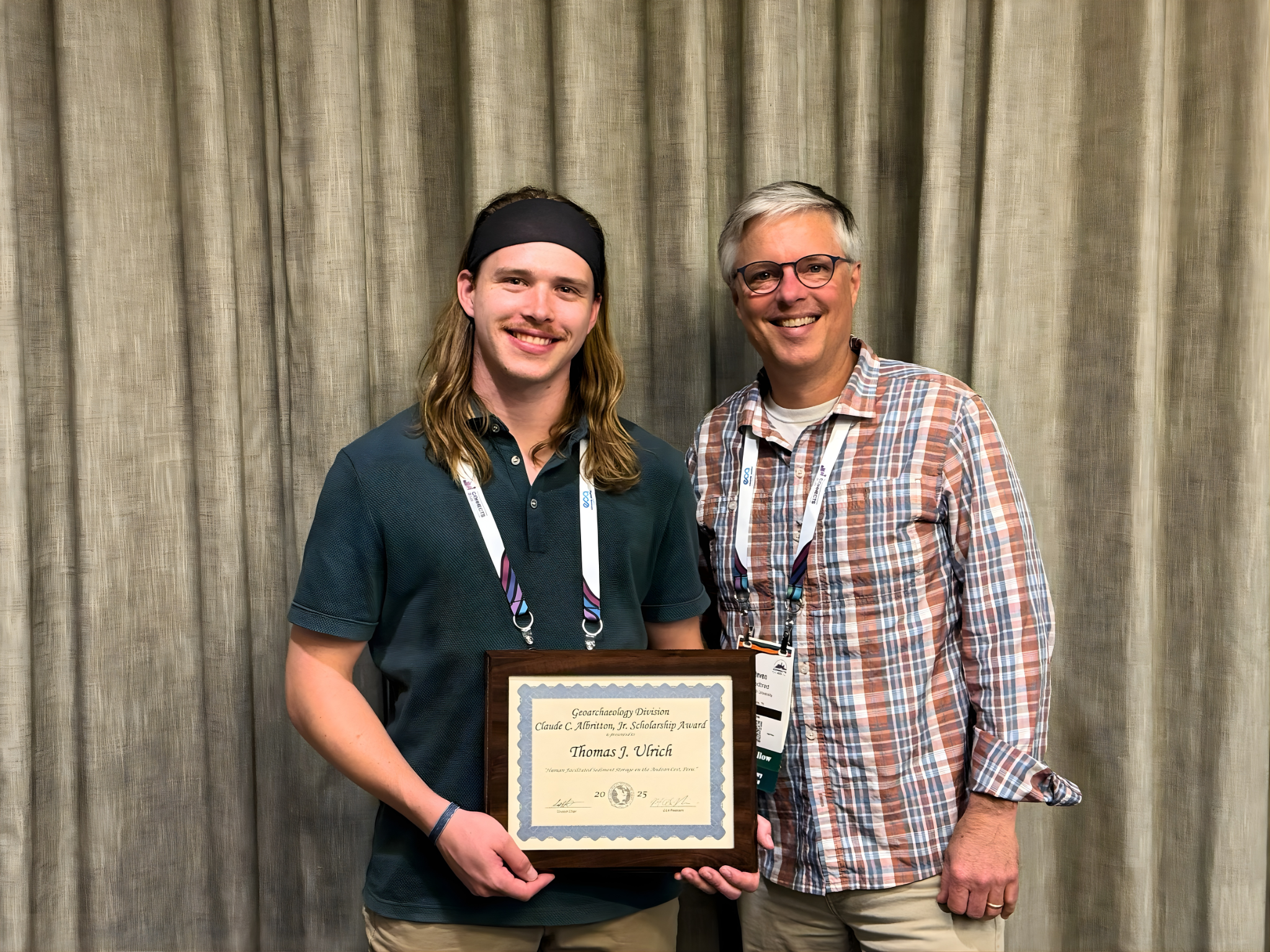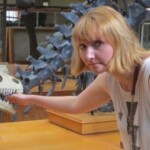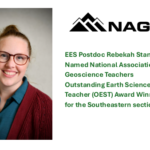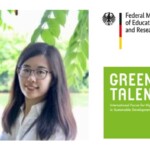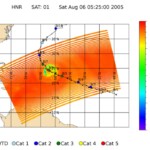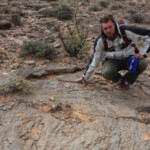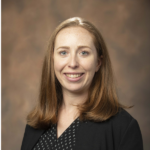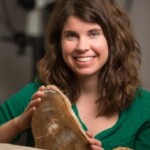faculty
EES Ph.D. Student Tom Ulrich Receives 2025 Claude C. Albritton, Jr. Award
Nov. 18, 2025—Tom Ulrich 2025 Claude C. Albritton, Jr. Award Geological Society of America – Geoarchaeology Division The Albritton Award Fund provides scholarships and fellowships for graduate students in the Earth sciences and archaeology for research.
New article, Peccaries are on important conservation tool!
Apr. 29, 2025—This article comes from Vanderbilt alumni, Michaela Peterson, who has completed her Ph.D. in the Spring 2024. Michaela has worked alongside Dr. Malu Jorge and has written several articles addressing conservation threats currently affecting the Neotropics. This study explores how deforestation and habitat fragmentation impact forest ecosystems, not only by causing species loss but also...
Rebekah Stanton awarded the National Association of Geoscience Teachers Outstanding Earth Science Teacher Award
Apr. 22, 2025—Congratulations to our very own, Rebekah Stanton, who has been selected as the recipient of the National Association of Geoscience Teachers Outstanding Earth Science Teacher (OEST) Award for the Southeastern section! Her dedication, passion, and innovative teaching methods in Earth Science have left a lasting impact on students and peers alike. The Outstanding Earth Science...
EES Professor Lin Meng Receives Green Talents Award
Nov. 3, 2022—Assistant Professor Lin Meng has received the Green Talents award from German Federal Ministry of Education and Research (BMBF). This award is given to 25 young scholars (in a PhD program or graduate <3 years) in the field of sustainability across the world every year. Awardees will attend a whole week science forum to make...
Ralf Bennartz analyzing first remote sensing data from NASA’s CubeSat TROPICS mission
Sep. 15, 2021—EES Professor Ralf Bennartz was included in a fascinating article that discusses NASA’s CubeSat TROPICS mission. Professor Bennartz is the SSEC senior scientist and principal investigator for UW–Madison’s involvement in the mission. You can find the full article here!
EES Professor John Ayers Interviewed for Tennessean article on Waverly Flooding
Aug. 30, 2021—EES professor John C. Ayers was recently interviewed by the Tennessean regarding the flooding in Waverly, Tennessee. You can find the full article here!
Vanderbilt scientists use fossil records to understand the present, predict future ecosystems
May. 10, 2021—by Marissa Shapiro Apr. 19, 2021, 9:00 AM By Miquéla Thornton Due to a multitude of human-driven impacts, the Earth is experiencing a biodiversity crisis. It has been referred to as the Sixth Mass Extinction, and scientists are examining similar events in the planet’s geological past looking for clues in ancient ecosystems to help us solve present-day issues. Simon...
The research of EES professor Larisa DeSantis is highlighted in The Hindu
May. 10, 2021—Polar bears forced to forage eggs as warming shrinks hunting grounds. You can read the article here!
As part of 150 Years of Women at Berkeley, and in celebration of the 150th anniversary of the resolution to admit women into the University of California, Berkeley on the same terms as men, EES Prof. Kristen Fauria is featured as a notable Berkeley alum!
May. 10, 2021—You can read more about the celebration and check out Prof. Fauria’s feature here!
Evidence suggests climate whiplash may have more extremes in store for California
Mar. 2, 2021—Vanderbilt paleoclimatologists using pioneering research have uncovered evidence of ancient climate “whiplash” in California that exceeded even the extremes the state has weathered in the past decade. Their findings present a long-term picture of what regional climate change may look like in the state that supplies the U.S. with more than a third of its vegetables and two-thirds of...
